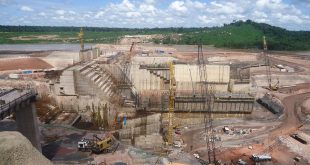by Beatriz Lourenço

Unrestrained consumption, production on a scale without measuring and mitigating environmental damage and the increase in the world population, among other factors, put the availability of natural resources at great risk and drastically harm the environment, whether through noise, air or soil pollution, or water.
For example, in Brazil, between 2010 and 2022, the population grew by around 6.5%, according to data from the Brazilian Institute of Geography and Statistics (IBGE), having in 2022, 203.1 million inhabitants; According to Agência Brasil, each person in the country generates around 343 kilograms of garbage per year, which totals 80 tons of waste per year. Industrial, mining and energy generation activities release greenhouse gasses and place Brazil in sixth place in the ranking of the world’s biggest polluters.
Aiming to have a less aggressive relationship with the environment, minimize environmental damage and impacts, and find financial benefits, more and more companies, voluntarily, have sought to implement Environmental Management Systems (EMS) in their operational processes.

An EMS is an organizational approach to identifying, monitoring and managing a company’s environmental impacts, and involves the implementation of policies, procedures and practices designed to promote sustainability and reduce the environmental impact of the institution’s activities. Thus, the main objective of implementing an environmental management system is to integrate environmental considerations into everyday operations, aiming for legal compliance, continuous improvement and the promotion of environmental responsibility, which, in turn, can also be advantageous for the company to achieve improve your relationships with your target audience and facilitate any type of partnership you may desire.
To regulate the implementation and operation of an EMS, ISO 14001 was developed, an internationally applicable standard that defines the requirements to be met and recognizes that the system aims both to manage impacts on the environment and the organization’s profitability.
The Certification of this standard can bring several benefits to organizations that have it, such as reducing operational costs, improving competitiveness and production and compatibility with parameters established by current environmental legislation. To achieve certification, the company must meet some prerequisites, including: established environmental policy, assessment of environmental impacts, established environmental goals and have an environmental management program, in addition to being in accordance with applicable legislation.
Did you like? Don’t forget to read our weekly articles, which will certainly help you in several aspects. Also visit our Instagram @inqportal and if you want to send us any suggestions, this is our email: inq.vdc@ifba.edu.br

 InQ.IFBA Portal da Inovação & Qualidade
InQ.IFBA Portal da Inovação & Qualidade



